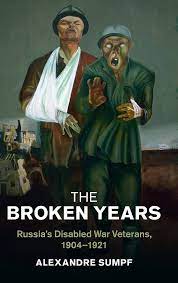The Disability History Association (DHA) is delighted to announce the results of the 2023 Outstanding Book Award. The depth and breadth of this year’s submissions, as well as of the individual works, are a testament to the continued vitality of disability history and to its capacity for expanding the historical discipline more broadly. Please join the DHA in extending congratulations and appreciation to Wei Yu Wayne Tan (winner) and Alexandre Sumpf (honorable mention), as well as to the communities that fostered their scholarship.
Wei Yu Wayne Tan was declared the winner for Blind in Early Modern Japan: Disability, Medicine, and Identity (University of Michigan Press, 2022).
 The committee’s comments included:
The committee’s comments included:
Blind in Early Modern Japan is a “carefully constructed work [that] fills in vital historical gaps: early modern era, Japan, and blind history.” It is “an impressive piece of scholarship” that “reveals new understandings of the relationships between medicine/systems of medicine and being blind, as well as how (a non-Western) religion contributed to the meaning and experience of being blind.” Tan “has done a superb job of locating and interpreting from a disability history perspective the experiences of blind people,” showing “how blind people formed an identifiable group of professionals from musicians, acupuncturists, and scholars, among other occupations, with elite males forming their own guild.” Ultimately, “there are many things to commend [in] this book’s contributions to disability history.”
Alexandre Sumpf was awarded the honorable mention for The Broken Years: Russia’s Disabled War Veterans, 1904-1921 (Cambridge University Press, 2022).
 The committee’s comments included:
The committee’s comments included:
“A superbly researched study of disabled veterans in Russia,” The Broken Years “addresses a significant omission in the historical record and insists on the important role disabled veterans have played in Russia’s past.” Characterized by “extensive, wide-ranging, and multilingual archival work,” the book importantly draws upon “first-person accounts from disabled soldiers’ points of view.” Sumpf is “expansive yet meticulous in his argument,” challenging readers “to consider wars as interlocking rather than discrete and individual: this is particularly useful for disability historians across many regions and eras.”